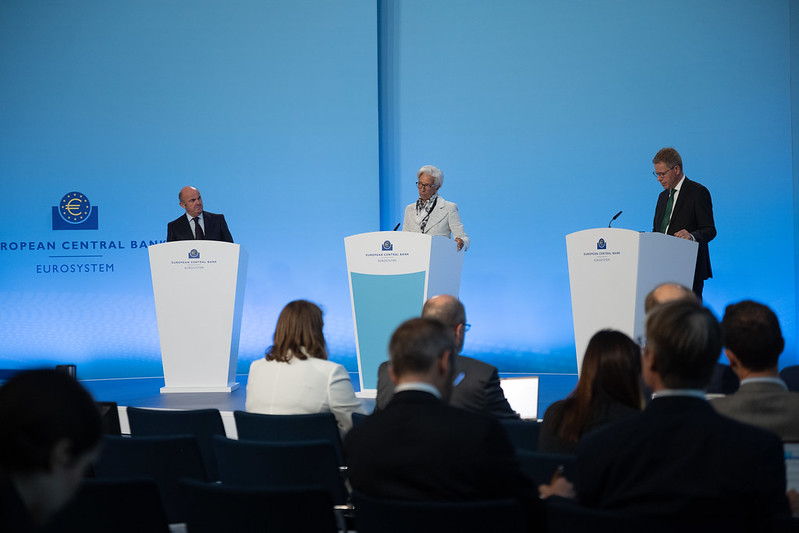On Thursday, the European Central Bank (ECB) increased its benchmark interest rates by an unprecedented 75 basis points and pledged more increases, prioritizing the battle against inflation even though the block is likely going towards a winter recession and gas rationing.
Because of this change, the benchmark rate for the 19 nations that use the euro will now be 0.75 percent. This comes following the first increase in interest rates from the central bank since 2011 in July, when rates were raised to zero after being in negative territory for years.
“We expect to raise interest rates further because inflation remains far too high and is likely to stay above our target for an extended period of time,” ECB chief Christine Lagarde said, adding that Thursday’s decision was unanimous.
Inflation in the Eurozone reached 9.1% in August, driven mostly by the skyrocketing cost of energy and growing costs for food.
Since the invasion in February, Europe has been working hard to wean itself off of the fossil fuel exports that Russia provides. As a response, Moscow has reduced the amount of natural gas sent to Germany and other nations in the European Union, driving up prices and compelling governments to spend hundreds of billions of dollars to subsidize the costs of energy for companies and people.
The decision to raise interest rates had been in limbo for several weeks, with policymakers vacillating between a rise of 50 and 75 basis points. However, a recent spike in both headline and underlying inflation is likely to have settled the debate. Lagarde has repeatedly argued that the current high level is simply unacceptable.
When questioned about possible future changes, Ms. Lagarde responded that a move of 75 basis points is not the norm and that possible future moves may be less; but, she did not rule out the possibility of a move that is equally big in the future.
On Thursday, European markets finished the day in the green, just a few hours after the European Central Bank announced that it would be raising interest rates by 75 basis points.
At the end of the trading day, the pan-European Stoxx 600 index had gained 0.5%, with banking and financial services companies topping the gains with respective increases of 2.3% and 1.2%. The decline in retail stocks was the most significant, coming in at 1.5%.



